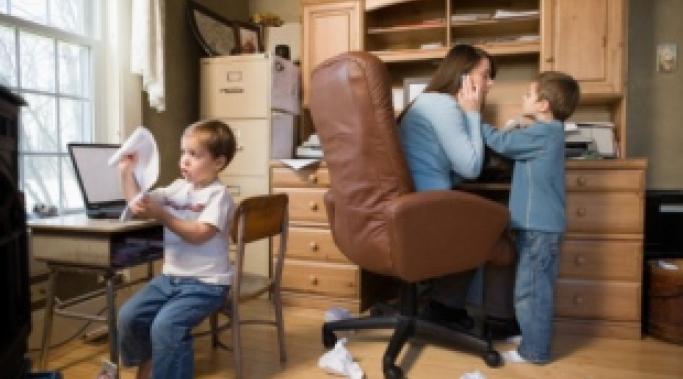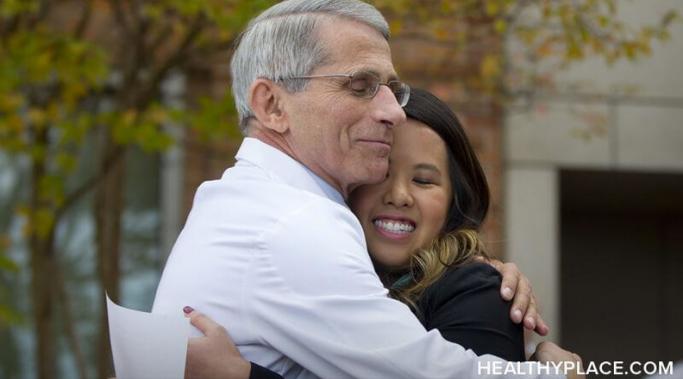Blogs
Recently a reader asked how to get over the feeling that her sister is faking dissociative identity disorder. If you doubt your friend or family member's diagnosis, I think it's important to identify why you're skeptical. What in particular has you questioning it? Write it down, and be specific. Now find out everything you can about each of those nagging suspicions. I'm willing to bet a healthy majority of them are based on common misconceptions about dissociative identity disorder. Of course, that doesn't necessarily mean you're wrong. Sometimes people who say they have DID don't have it at all. That could be because they're pretending for some perceived gain, e.g. sympathy. But I believe the discrepancy is more likely due to misdiagnosis and genuine confusion.
There are certain relaxation techniques I've found genuinely helpful - and have come to rely on - to deal with specific anxiety issues like:
getting to sleep - ever;
my phobia of flying, and;
managing daily anxiety and depression.
Relaxation techniques relieve anxiety because they literally change your mind. They allow you to settle into the brain wave states that are normally only active during sleep. Basically you're alert and fully relaxed, getting a whole heap of the benefits of sleep, without the bother.
Katie Rios developed acne at 11-years-old and started picking at her skin. Ten years later, Katie still struggles with what she now knows is dermatillomania (also known as excoriation disorder). An impulse control disorder marked by secrecy, compulsive skin picking holds sufferers hostage in a painful cycle of compulsion and shame. Many people with dermatillomania go to great lengths to hide their skin picking and the resulting scars, limiting their ability to get treatment and support. Severe cases can interfere with an individual's ability to work, have relationships, or even spend much time out in public for fear of having the embarrassing secret discovered.
Congratulations; if you’re reading this you’ve survived the holidays, or most of them anyway. You’re past the late-night wrapping sessions, the overindulgence in eggnog and the stuffing that you never like but every year are forced into eating anyway. Huzah.
But if you’re a bipolar like me, you’ve found that all that forced merriment has left you feeling hollow, tired and depressed, so it’s time to take action to get back to your pre-holiday self.
Most people have the same or similar resolutions for the New Year: lose weight, save money, and, [insert your romantic objective here]. Those are all good resolutions (if you can keep them past January), but this year I’ve decided that I’m going to keep it simple, and just focus on one main objective: to think positive.
I'm still working on that post I've been promising--you know, the one where I address my perception of anger and blame being directed primarily at parents when it comes to psychiatric illness. I think about it often--when I'm in the shower in the morning, thinking about my own parents; when I'm checking my email, reading a comment from a reader who believes parents are the root of all evil; when I'm at home, and my adoring firstborn has just reminded me I'm not only an idiot, I'm annoying as all get-out.
Lack of funding for the mental health system is not as visible as this bus stop, but it is just as real. The consequences include a lack of talented treatment providers, difficulty accessing treatment and an overburdened prison system.
One of the problems I have with the mythology surrounding dissociative identity disorder is that it makes finding support and treatment difficult. DID is hard enough to contend with on its own without having to fight your way through fallacies and stereotypes just to get help. Some common misconceptions about dissociative identity disorder come from entertainment media. But DID itself, in the hands of those who don't understand it, is also a source of prevailing myths about the disorder.
Widowed at 29, during her second pregnancy, Hyla Molander was overwhelmed by grief so profound her body threatened to cease functioning. Hyla survived her most challenging times, at least in part because of the support and love she received. But she also knew she wouldn't recover without finding hope, the most basic and essential of self-help strategies.
Christmas: love it, hate it - it's here. And so are you.
What are you doing to treat stress, anxiety and depression over the Holidays?
Sometimes the loss of structure, even for a few days, when we stop putting so much energy into work or let our minds wander to the possibilities in things, trips me up. It's unexpected. All at once you're not distracted, and you're feeling things.








